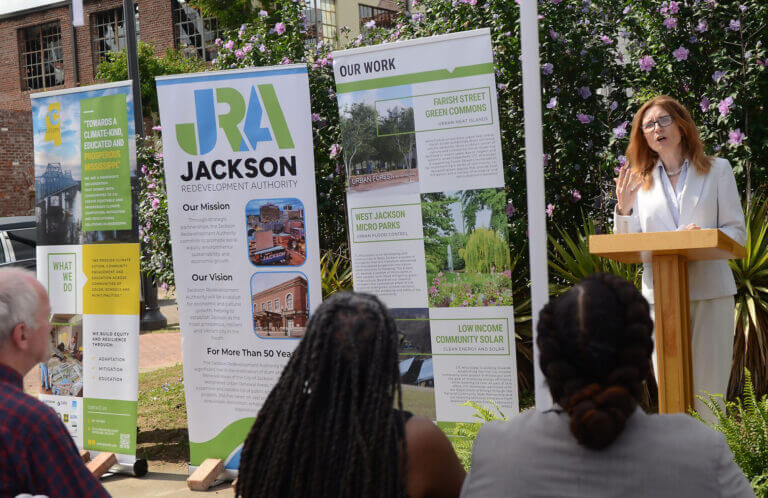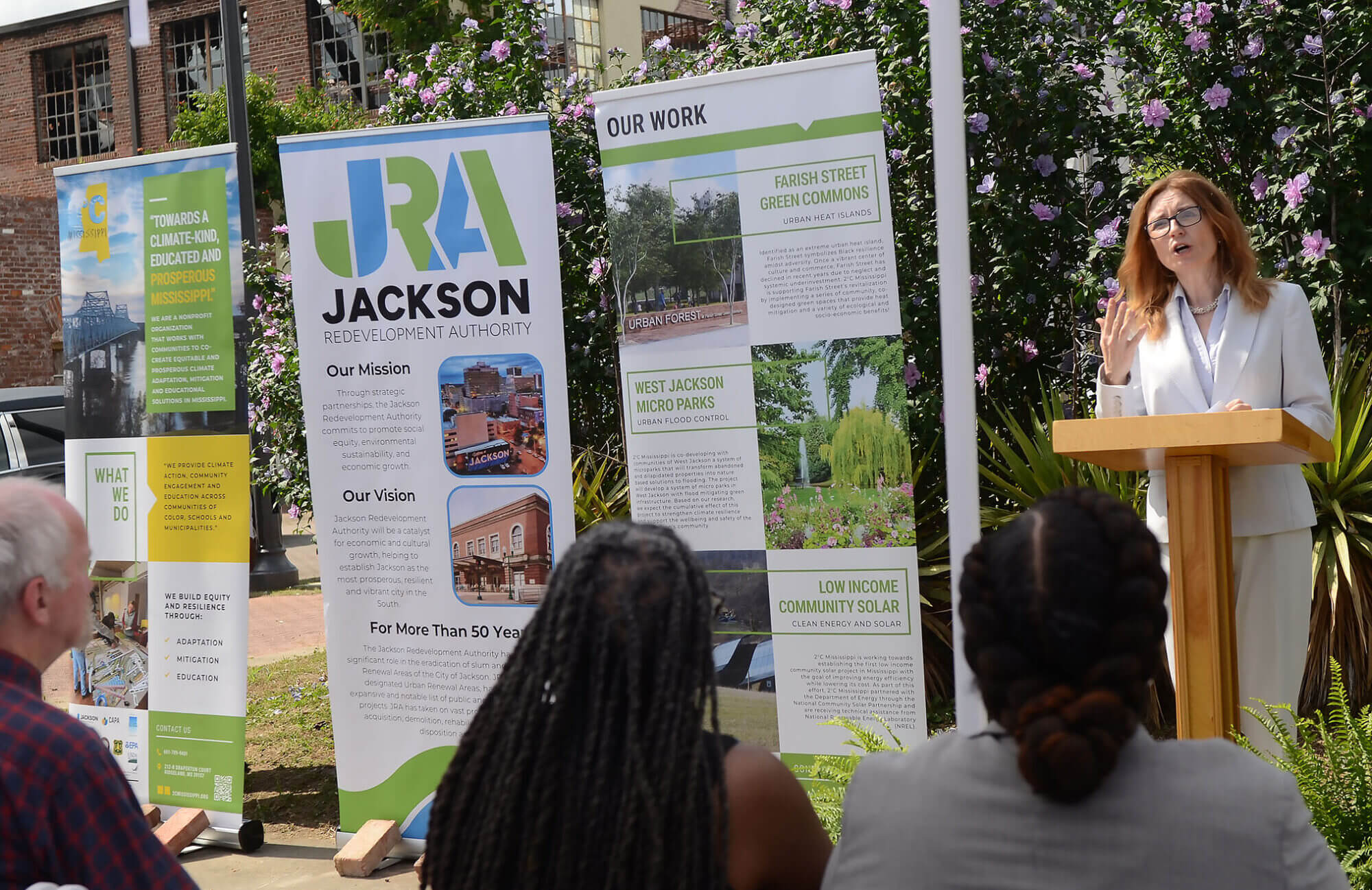

2C Mississippi, a Ridgeland-based nonprofit focused on climate resilience in Mississippi, recently joined a national lawsuit against the Environmental Protection Agency after the government terminated over $20 million in grant funds for the organization.
In February, the lawsuit says, the EPA followed directives from President Trump to cut federal spending by terminating grants for a variety of environmental justice and climate resilience projects. Lawyers from a number of groups, including the Southern Environmental Law Center and Earthjustice, filed the complaint in federal court in Washington D.C. on June 25. The complaint asks for full funding of the roughly 350 awarded grants impacted by the EPA’s cuts.
The Ridgeland organization, federal data shows, was set to receive about $20.5 million for two projects in Jackson: $20 million for a self-sustainable “resilience hub” and $500,000 to complete a “microparks” project aimed at tackling flooding and blight in the city. 2C Mississippi, one of the over 20 plaintiffs from around the country, received just $300,000 of those funds so far.
In a March memo the EPA sent to 2C Mississippi, the agency wrote, “This EPA Assistance Agreement is terminated in its entirety effective immediately on the grounds that the award no longer effectuates the program goals or agency priorities.”
Dominika Parry, who founded the nonprofit in 2017, called it a “nearly impossible task” to obtain the $20 million elsewhere for the resilience hub, a concept she said is growing around the country, such as in New Orleans. The idea, she explained, is to provide shelter both during emergencies but also during general times of need.

“ This is a place where people can come, stay overnight, have access to energy, be in healthy conditions,” Parry said.
Features would include a tornado shelter, 150 beds, showers and charging stations, as well as job training and community spaces. Parry added the facility would be self-sustainable with an independent well water system as well as solar panels with battery storage. Working with Jackson nonprofit Voice of Calvary Ministries, Parry secured a site for the hub at a former church in west Jackson.
The microparks project, which she discussed with Mississippi Today last year, seeks to take on both blight and flooding by turning dilapidated properties in flood zones into communal green spaces with public art and gardens. Despite having already selected the locations and cleared the land for the parks to live in, Parry said she’s had to pause the project since the EPA’s termination. She was optimistic that funding could come from elsewhere, but it’s unclear how long that would take.
Without the grant money, Parry’s unsure if her organization as a whole can survive. Already, she said, she’s had to start working for free as well as reduce her employee’s salaries.
“Losing that funding is a pretty existential change to our functioning,” she said.
In a separate project, 2C Mississippi secured a $1.5 million federal grant for a recently unveiled green space on Farish Street.
“So far we’ve been incredibly grateful and lucky that we were able to keep delivering and build trust, and now the idea we are going to go and tell people we don’t have the funds, that weighs on me,” Parry said. “People in Jackson have been promised many, many things that never happened.”
Other Mississippi groups whose grants were terminated include the Gulfport-based Steps Coalition and Jackson State University. Steps Coalition, according to federal data, received just $122,000 of a $500,000 grant to engage residents in local land-use and leadership training. JSU received about $60,000 of $100,000 from two EPA grants to train water technicians, support grant writing in underserved communities, and provide water to a garden at Blackburn Middle School in Jackson.
- Mississippi Marketplace: data center ups and downs, alcohol shortages and new manufacturing projects - February 19, 2026
- More Mississippi students are graduating despite pandemic-era disruptions, new data shows - February 19, 2026
- Education advocates says Mississippi needs honest, nuanced school choice discussion - February 19, 2026